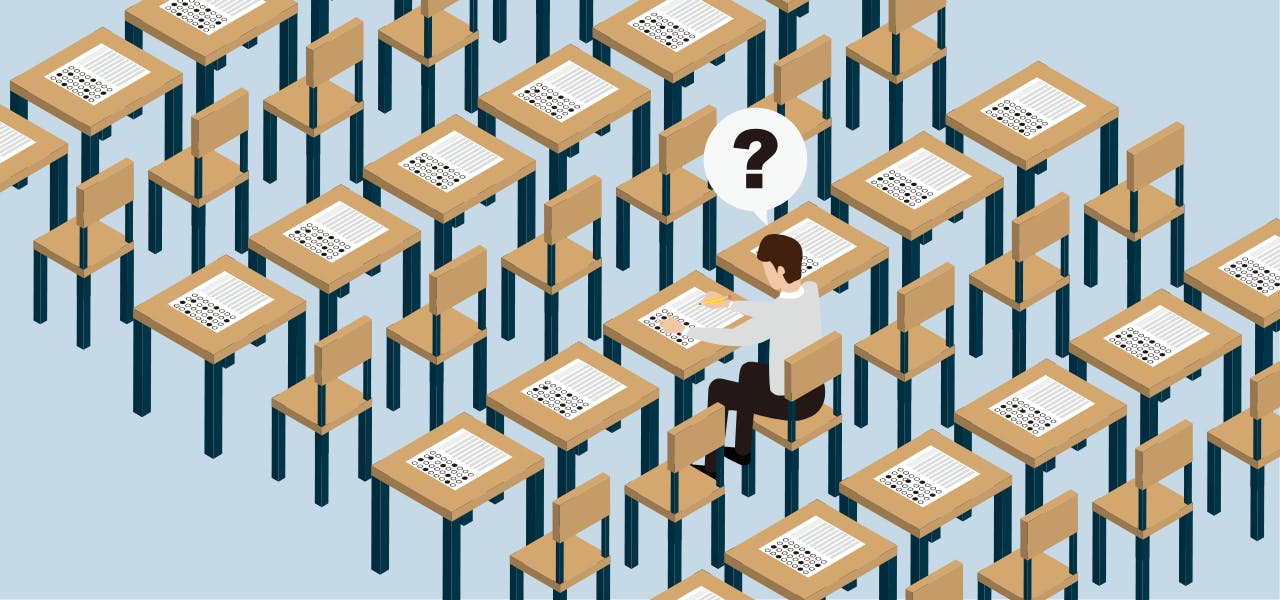While the coronavirus pandemic has disrupted so much of modern life, it has also changed the plans of college admission boards when it comes to standardized testing. That’s because testing centers have been largely shut down due to the pandemic. It’s not easy to administer testing equipment and have several people in the same room for hours on end, even with masks.
The situation is also compounded by less college admissions this year and the anxiety of going back to school due to the uncertainties of the current and future job market. Hybrid classes and institutions offering flexible schedules have become competitive in the higher educational system. As such, SAT scores which were once the norm in deciding a students entry to a certain college has now been somewhat replaced by personal statements and high school grade point averages.
Critics of Standardized Testing
There are many critics of standardized testing, so some are happy to see the SATs go and help students who test poorly get a fairer shot at being admitted to their school of choice. Some have even gone so far as to say that the test is “racist” because it has been researched that students from white, middle class backgrounds have families that can afford SAT prep classes, while minority and less affluent candidates don’t have such luxuries, and end up statistically not being in the same bracket of scores as candidates from the suburbs. There is some legitimacy in these claims.
Other critics state that the test is simply useless from an academic standpoint, and assert that intellect does not always show up on standardized tests because of anxiety and other variables that present themselves during test day. For example, simply lacking the proper nights sleep before a morning test could mean the difference between scoring in certain percentile bracket—which could translate to a threshold for a certain university either being met or not. For some, there’s too much variability around such tests.
Finally, there is the question of tuition dollars, capitalism, and opportunity. While American universities are lauded around the world for their amazing professors and noteworthy departments that have produced presidents, they are still businesses to an extent. The plan for dropping SAT scores amid the current Covid-19 situation means that universities can take in more applicants, accept the students they need to fill quotas, and then make their new mottos about equality and fairness. Advocates of dropping the SAT must admit that part of the reasoning from an institutional standpoint is so professors salaries can get paid at the end of the day and so universities don’t accrue more debt.
Advocating for keeping the test
While there are many advocates for getting rid of the test, there are still some who favor standardized testing and believe it to be a fair and equitable system. For example, introverted students in high school who struggle with class participation and who do not do well when it comes to forming a strong social network see the standardized tests as a way to show their intellectual aptitude and help form a strong college admissions application.
Others have also compared the SAT, a test in which many students walk in blindly and have to strategize, think coherently, an remain calm for a duration of time to the likes of the first year of college. In other words, the standardized test is a good predictor for how a student will react, and be able to handle the first years course load at a university. Both represent scenarios of ones ability to navigate the unknown and make sense of new ideas and concepts. The University of California found this to be a better predictor of early college success than high school grades in a recent study.
Overall, there are some educators who see beyond the issue of standardized testing and simply advocate for another third party measurement to be an indicator of college success, and admission into a program—such as teacher recommendations. The qualitative letters would give admission boards a closer look into a students behaviors, their ambitions, their strengths, weaknesses, and the opportunities that might match with a certain curriculum.
